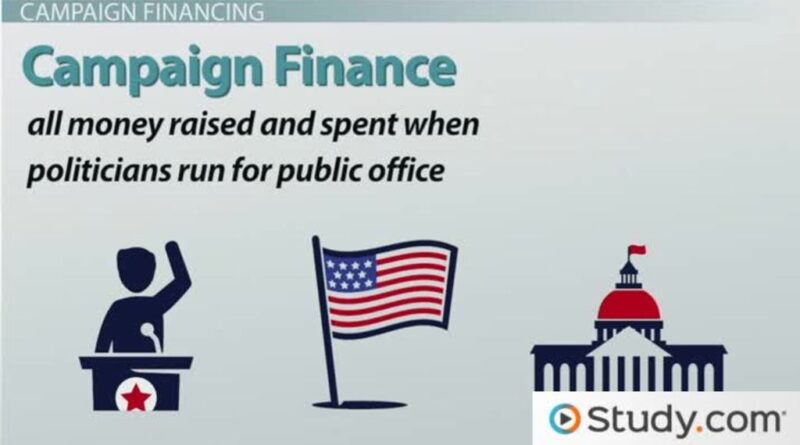Elon Musk Moves Beyond Tech: The Birth of the ‘America Party’
Elon Musk, a trailblazer in the domains of reusable rocket technology, electric vehicles, and expansive satellite internet, is now endeavoring to venture into an unchartered territory—establishing a new political party. However, the inception of the ‘America Party’, an antidote to the prevailing ‘uniparty’ system of the Democrats and Republicans, as envisaged by Musk, may prove to be a herculean task, with existing campaign financing laws further complicated the undertaking.
These regulations impose formidable obstacles on fundraising and infrastructure build-up, making the creation of a new party practically unlawful. To cite an example, the rules preclude anyone inspired to form a new party from allocating millions in political venture capital necessary to kickstart such a project. A breach of these intricate restrictions could have severe consequences, potentially leading to imprisonment.
These restrictive measures, interestingly, are a relatively contemporary phenomenon. Prior to the 1970s, no laws of such nature were in effect. It was only when Ross Perot’s Reform Party experienced a modicum of success during the 1990s, capturing 8.4% of the presidential vote in 1996, and getting a governor elected in 1998, did the law undergo an amendment in 2002 to make the formation of a new party even more taxing.
A significant portion of this robust framework that impedes party formation is debatably unconstitutional, but taking them to court requires both a substantial expenditure of resources and time. In some instances, it may take years to contest these legalities.
Among the set of stringent rules is the limitation of contributions from a single person to a budding political party to a maximum of $5,000 annually. This restriction makes it incredibly challenging to garner necessary funding to go head-to-head with time-honored parties that have the advantage of a long-standing network of donors and other resources, including established infrastructure, voter registration lists, and ballot access.
While fledgling political entities fight this uphill battle, well-entrenched parties such as the Democrats and Republicans have the liberty to amass up to $443,000 annually from a single contributor, further highlighting the systemic bias.
A glance at the journey of Unity08 offers a clear illustration of how these licensing norms can hinder political organization. Unity08, which was a non-profit, had the goal to simplify the nominating process for president and vice president prior to the 2008 election with the utilization of technology.
However, the Federal Election Commission (FEC) decreed that it would adhere to the $5,000 limit while subjecting it to a plethora of intricate regulations during its early stages. The organization had to endure a lengthy legal battle just for establishing its legitimate presence without any undue regulatory obstacles.
Post years of expensive litigation, the U.S. Court of Appeals declared in 2010 that Unity08 could not be regulated as a political committee until it had a ‘clearly identified’ candidate. By this stage, the organization was compelled to rebrand itself to ‘Unity2012’. Amidst this legal confrontation, the major parties accused the group of dubious actions, further hampering its fundraising abilities.
The No Labels group, in a similar vein, encountered comparable obstacles during its attempted launch in 2024. In addition to stern contribution limits, the procedure involved in becoming a recognized national political party is excessively complex.
This process essentially works as a government authorizing mechanism for a new political party — a direct violation of the First Amendment’s assertion that ‘Congress shall make no law’ restricting free speech. For a newcomer to function like a conventional party, the FEC mandates them to demonstrate ‘sufficient national-level activity’, including ballot access extending to congressional races, systematic voter registration drives, nationwide promotion of party stances, and setting up of state-based committees.
This essentially puts prospective parties into a paradoxical situation. They can’t mobilize the required capital to behave like a national party without FEC approval, and they can’t earn such approval unless they exhibit characteristics of a national party.
Even agreeing that the ‘America Party’ manages to navigate these regulatory barriers, another daunting challenge looms. The FEC, which ought to have six members, is currently functioning without the necessary quorum of four needed for granting approvals. The Commission currently has three vacancies, and nominations for these spots are yet to be sent to the Senate for ratification.
The multitude of challenges Musk encounters bring to light the inherent issue with campaign finance laws: they regard political speech as a privilege requiring government sanction, instead of a fundamental First Amendment right that is crucial for a functioning democracy. The creation of a new political party is fundamental to liberty and democracy. However, our campaign finance laws render this vital activity almost impossible, even for someone with extraordinary means and fame such as Elon Musk. If a powerhouse like Musk faces difficulty in establishing a political party, one can only wonder about the prospects for the average person. These regulations have effectively resulted in a scenario wherein political speech is amongst the most controlled activities on American soil. This neither complies with the language of the First Amendment nor safeguards democratic principles.



